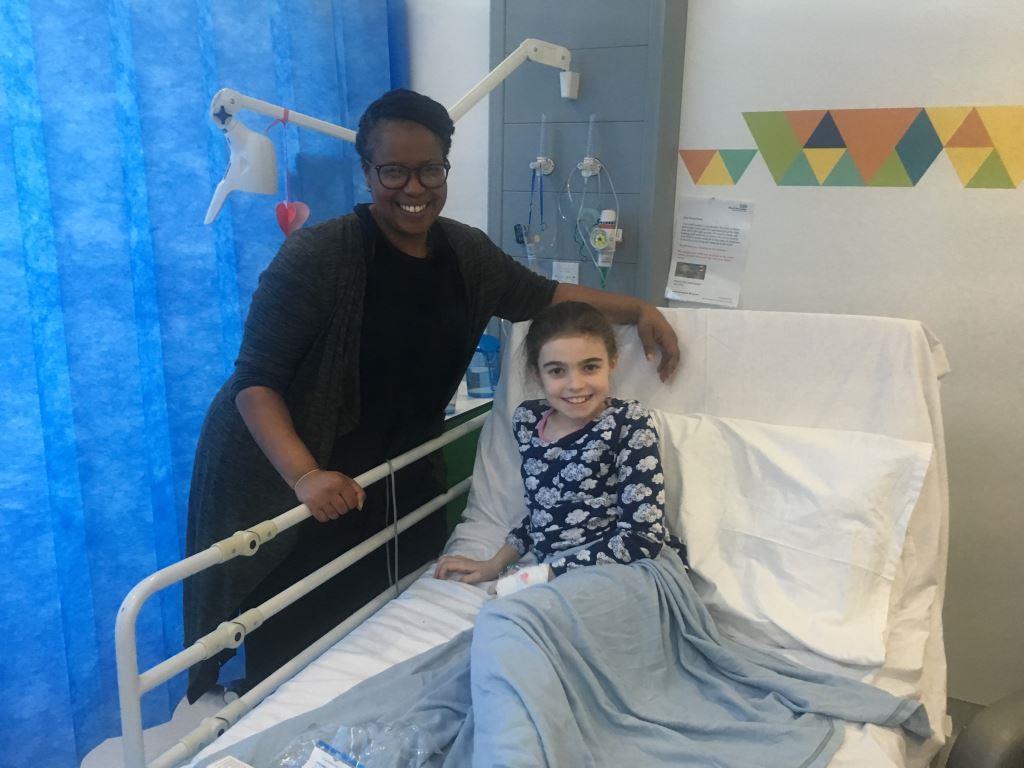
Children with asthma are making fewer unnecessary trips to hospital, thanks to a revolutionary way of delivering care that has been launched at the Royal Free London (RFL).
Patients, doctors, nurses and other clinicians have worked together to design a treatment plan that means children finding it difficult to breathe – those suffering from a ‘wheeze’ - can access the right care sooner.
The treatment plan is known as the wheezy child pathway – and because this has now been standardised across the whole trust, it means all children at Barnet Hospital and the Royal Free Hospital will receive the best possible care.
Caroline Byrne, asthma nurse for Enfield, has been educating staff across the trust as part of the launch.
She said: “Children with asthma often make repeat visits to the emergency department, often because they have not been given the right care or their families haven’t been given the right information the first time around. Since we started the wheezy child pathway we are already seeing the number of children coming back to hospital decreasing because families are better able to manage the condition at home.
“We’ve been teaching the wheezy child pathway to teams across our hospitals, including emergency staff, children’s ward staff and those in out-patient clinics. The three key things are - knowing the medication, inhaler technique and having a management plan. It is important that families are given the right information as well, so they can manage the condition at home.”
Daisy O’Leary, 10, from Gospel Oak, has been treated on the children’s ward at the Royal Free Hospital.
Daisy, who has a type of epilepsy which causes asthma attacks, had to be admitted after having breathing difficulties. She is now on steroid medication and has been taught how to use her inhaler by nurse Adama Kargbo.
Adama said: “It’s really important to empower parents and the children, give them the confidence to use the inhalers and manage the medication appropriately.”
Caroline added: “We really hope that this pathway will be adopted by other trusts – making sure that care is consistent means that every patient can access the most appropriate treatment sooner.”
The wheezy child pathway is part of a clinical practice group (CPG), which is a new way of delivering care launched at the RFL last year. CPGs use the latest clinical evidence to ensure all patients have access to the best and most innovative treatments the NHS can offer. The aim is to standardise care so all patients receive the same high standard of treatment.
Picture caption: Nurse Adama Kargbo with patient Daisy O'Leary.
 Translate
Translate
